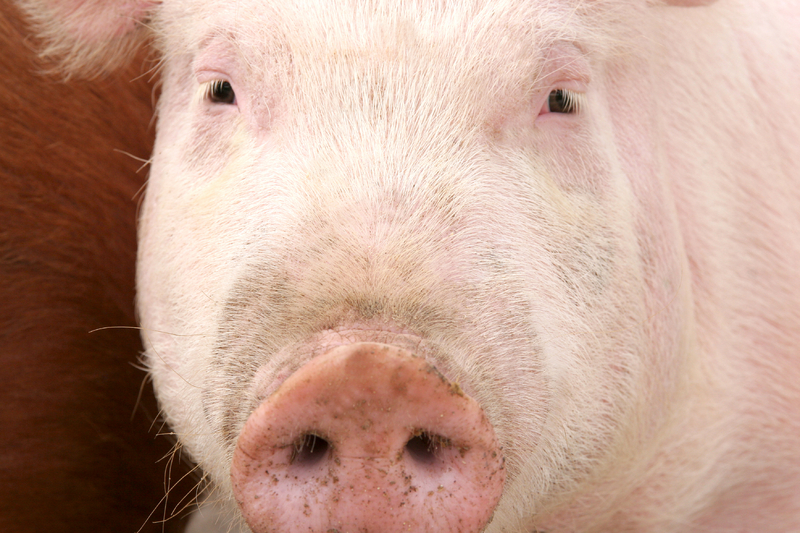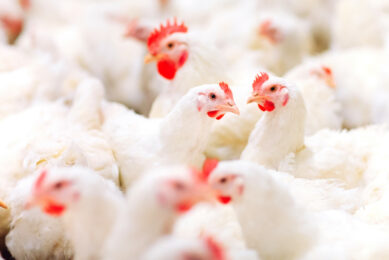Improving digestibility of swine feed using probiotics

A new Brazilian study shows that a swine feed supplement containing Bacillus subtilis and B. licheniformis markedly improves digestibility, allowing pigs to get more nutrition from lower-energy diets.
The study, which was conducted at Brazil’s Federal University of Viçosa, was designed to evaluate the impact of the dual-strain probiotic supplement on nutrient and energy digestibility in grower diets with different energy concentrations.
“Our analyses show that adding B. subtilis and B. licheniformis to grower diets increased digestibility of all measured nutrients, particularly fat and plant fiber,” said Dr Jens Noesgaard Joergensen, Chr. Hansen’s global swine product manager. The probiotic combination is marketed commercially as BioPlus YC or BioPlus 2B.
He continued, “When animals can obtain more nutrients and energy from their feed, producers can save money by using a reduced-energy diet, while maintaining the performance of their pigs.”
Each pig group in the study were fed a high or low energy diet
Investigators randomised a total of 36 barrows with an average live weight of 31.2 kg ± 4.7 kg to one of four treatment groups. Each group was fed either a high-energy diet or a low-energy diet, with or without the probiotic included at 1.3E+09 CFU/kg feed (Table 1). The high-energy diet contained approximately 100 kcal more than the low-energy diet due to the addition of soybean oil.
The animals were housed individually in metabolism cages, designed to collect urine and faeces separately. For the first five days of the study, the animals adapted to their cages and diet, and investigators determined the amount of feed to give each pig as a function of its metabolic weight. Over the next five days, investigators delivered the feed and collected faeces and urine samples for analysis.
Faecal samples were analysed for dry matter, moisture, crude energy, crude protein, ether extract, crude fibre, neutral detergent fibre (NDF) and acid detergent fibre (ADF), mineral matter, calcium and phosphorus. Urine samples were analysed for crude energy and crude protein.
Enhanced digestibility of feed by pigs
Results indicate that probiotic supplementation increased the digestibility of all nutrients investigated in the study, regardless of energy concentration, especially minerals (+7%), crude fat (+7%) and NDF (+5%) (Tables 2a and 2b).
“It’s worth noting that the energy concentration of the feed had no effect on the degree to which the probiotics boosted digestibility,” Joergensen said. “Thus, producers can reliably count on the impact of probiotic supplementation, no matter what the energy content of their feed.”
The enhanced digestibility of fat and NDF in the probiotic groups was associated with a 1.1% increase in metabolisable energy, Joergensen noted. Most of this additional energy was due to improved plant fibre digestion, he explained.
“Normally, pigs can’t utilise plant fibres very well, but this study shows that the probiotic strains we used in the study release enzymes that make more plant carbohydrates available to the animal,” he stated.
“For animals, this means increased availability of nutrients. For producers, this means maintaining animal performance with lower-energy diets – which translates to lower feed costs and better returns on investment.”











